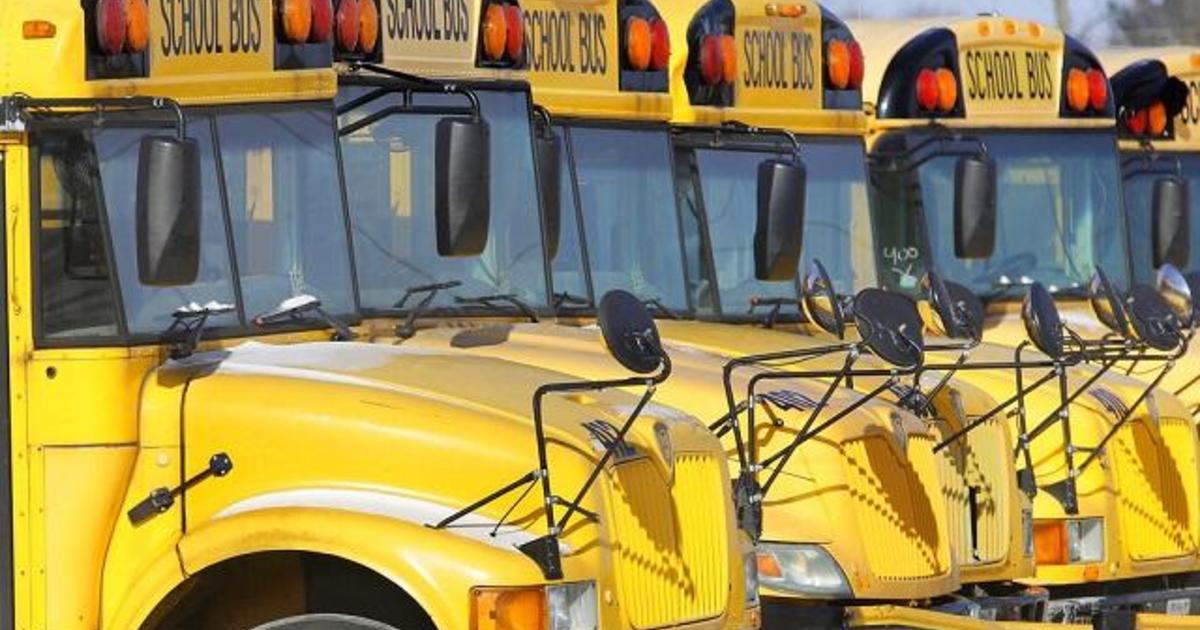Trump's Budget Plan Would Create Soaring Deficits, Calls For Obamacare Repeal, 65 Miles Of 'The Wall'
WASHINGTON (AP) — President Donald Trump is sending Congress a $4.4 trillion spending plan that provides a huge increase in defense spending while cutting taxes by $1.5 trillion over the next decade. The result is soaring budget deficits.
RELATED: Trump's Infrastructure Plan Relies Heavily On Local Governments To Produce Funding
Trump's first budget last year projected that the government would achieve a small surplus by 2027. But the new budget never gets to balance. It proposes $7.1 trillion in red ink over the next decade, basically doubling last year's forecast.
OBAMACARE
The budget is renewing calls for repealing and replacing former President Barack Obama's health care law. But there's little evidence that Republican leaders have the appetite for another battle over "Obamacare."
Repeal of the Affordable Care Act should happen "as soon as possible," say the budget documents.
The Obama health law would be replaced with legislation modeled after an ill-fated GOP bill whose lead authors were Sens. Bill Cassidy of Louisiana and Lindsey Graham of South Carolina. The nonpartisan Congressional Budget Office said the legislation would leave millions more uninsured.
The budget calls for a program of block grants that states could use to set up their own programs for covering the uninsured.
ENVIRONMENT
The budget also calls for slashing funding for the Environmental Protection Agency by more than one third, including ending the Climate Change Research and Partnership Programs.
The president's budget would also make deep cuts to funding for cleaning up the nation's most polluted sites, even as EPA Administrator Scott Pruitt says that's one of his top priorities. Trump's budget would allocate just $762 million for the Hazardous Substance Superfund Account, a reduction of more than 30 percent.
Current spending for Superfund is down to about half of what it was in the 1990s. Despite the cut, the White House says the administration plans to "accelerate" site cleanups by bringing "more private funding to the table for redevelopment."
THE WALL
According to the new budget documents, the first stage of the president's proposed border wall in Texas' Rio Grande Valley would be 65 miles long, costing an average of $24.6 million a mile.
The administration had previously disclosed the amount of money it wanted to spend on the wall but hadn't said where it would be built or how long it would be.
Walls currently cover about one-third of the border with Mexico, and the administration wants to eventually spend up to $18 billion to extend the wall to nearly half the border. Trump has insisted Mexico pay for it; Mexico says that's a non-starter.
The proposal sets aside $782 million to hire about 2,000 U.S. Immigration and Customs Enforcement officers and 750 more Border Patrol agents.
DEFENSE
The Pentagon is proposing to spend hundreds of millions more in 2019 on missile defense.
The budget calls for increasing the number of strategic missile interceptors from 44 to 64. The additional 20 interceptors would be based at Fort Greely, Alaska. Critics question the reliability of the interceptors, arguing that years of testing have yet to prove them effective against sophisticated threats.
The Pentagon also would invest more heavily in the ship-based Aegis system and the Army's Patriot air and missile defense system. Both are designed to defend against missiles with ranges shorter than the intercontinental ballistic missile that is of greatest U.S. concern in the context of North Korea.
EDUCATION
School choice advocates will find something to cheer about in the 2019 budget plan.
Fulfilling a campaign promise, Trump is proposing to put "more decision-making power in the hands of parents and families" in choosing schools for their children with a $1.5 billion investment for the coming year. The budget would expand both private and public school choice.
A new Opportunity Grants program would provide money for states to give scholarships to low-income students to attend private schools, as well as expand charter schools across the nation. Charters are financed by taxpayer dollars but usually run independently of school district requirements.
The budget also calls for increased spending to expand the number of magnet schools that offer specialized instruction usually focused on specific curricula.
Follow @CBSBaltimore on Twitter and like WJZ-TV | CBS Baltimore on Facebook
(© Copyright 2018 The Associated Press. All Rights Reserved. This material may not be published, broadcast, rewritten or redistributed.)



